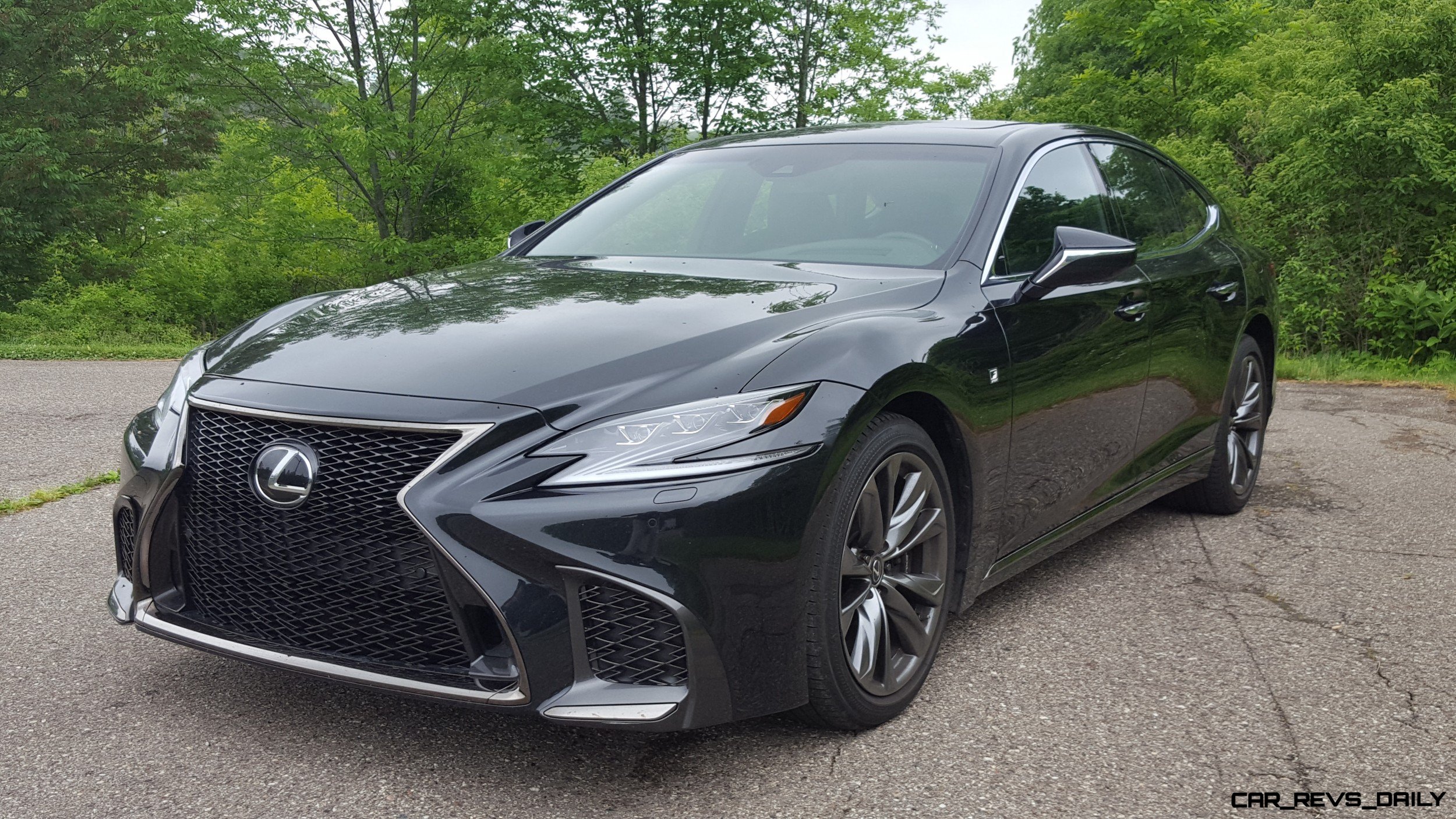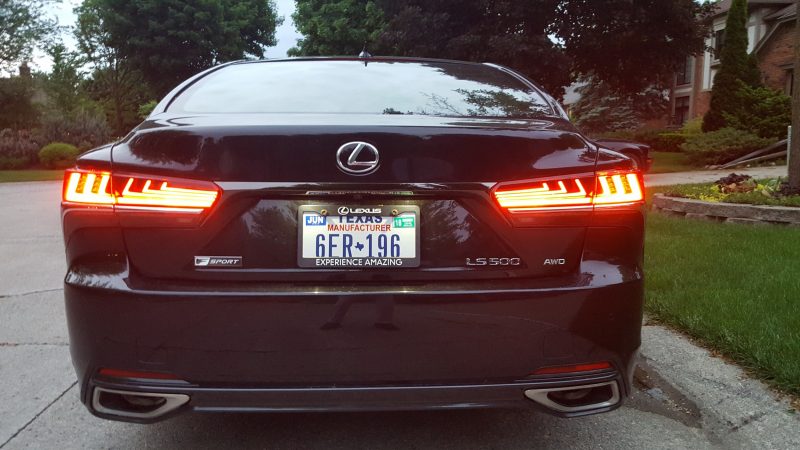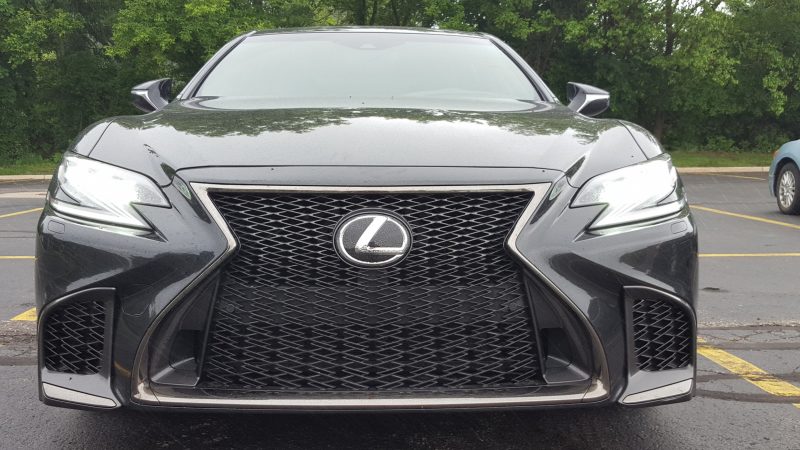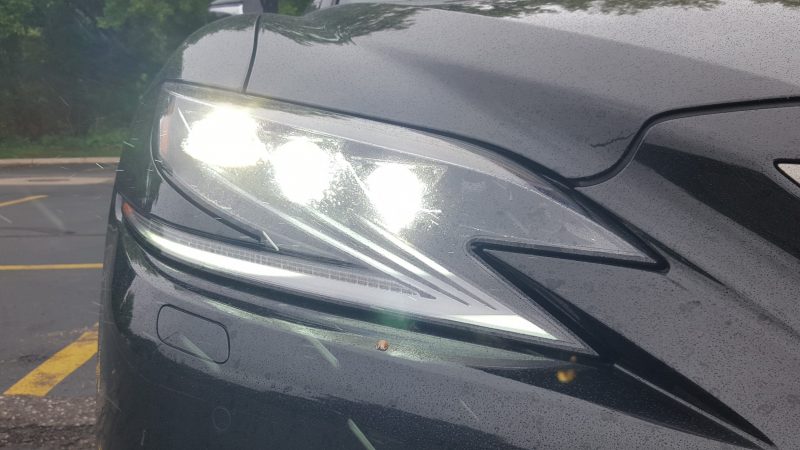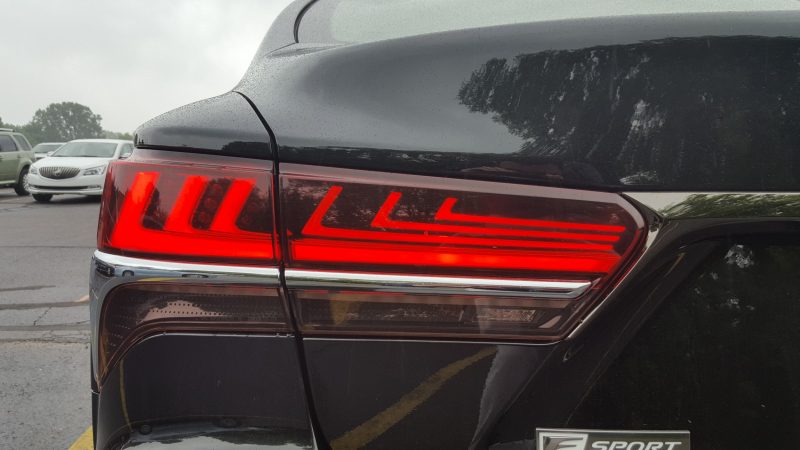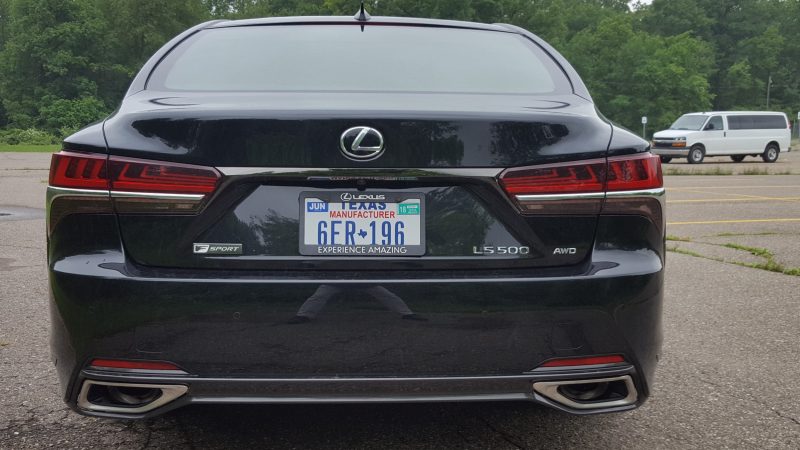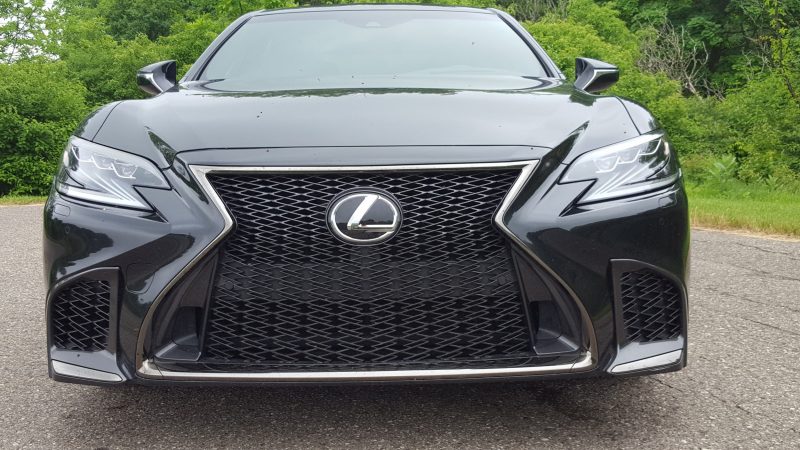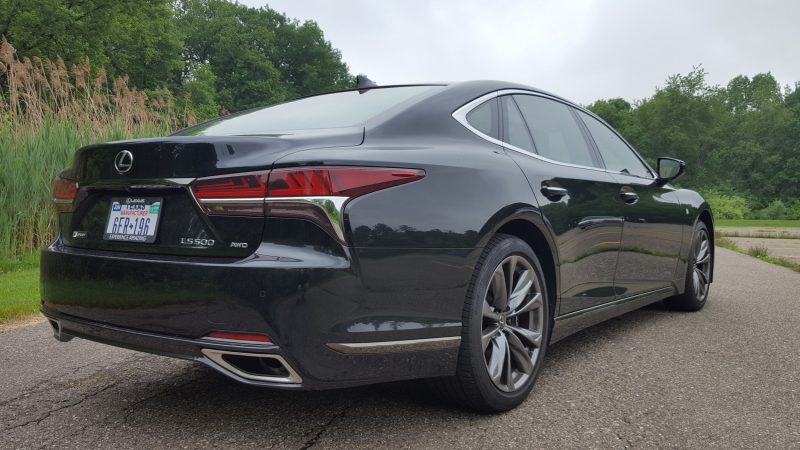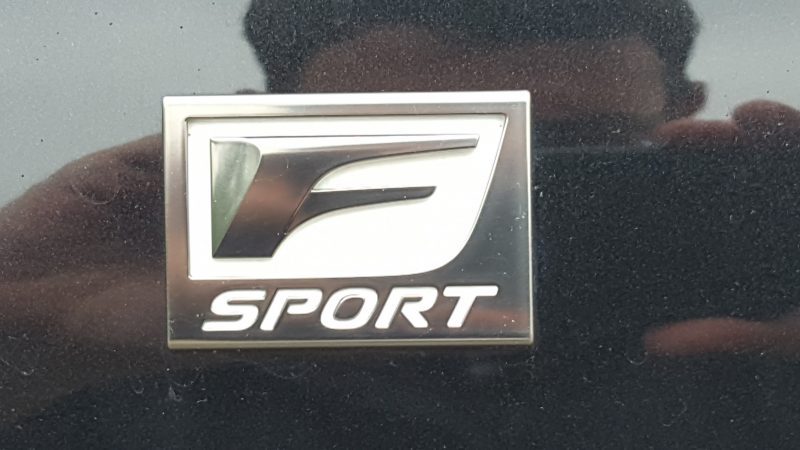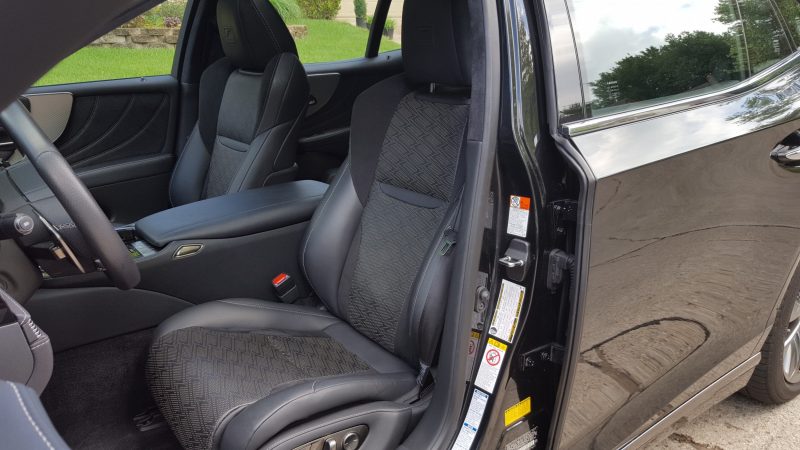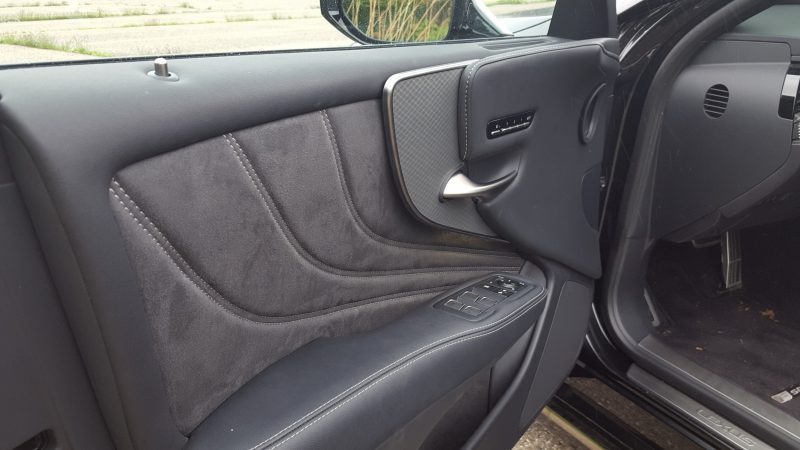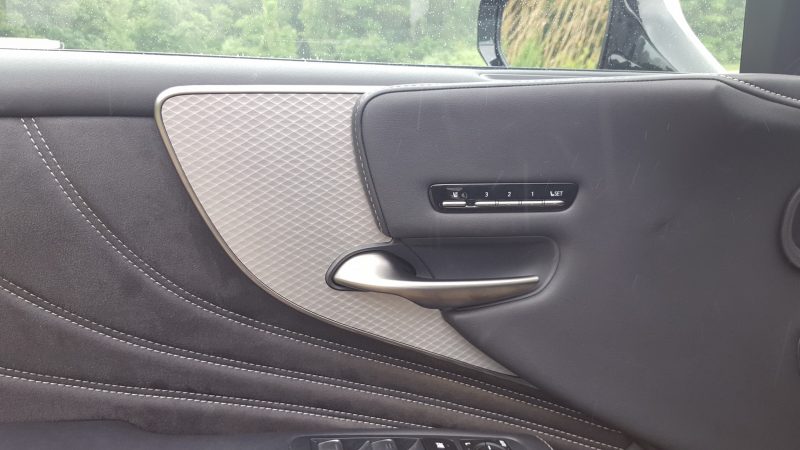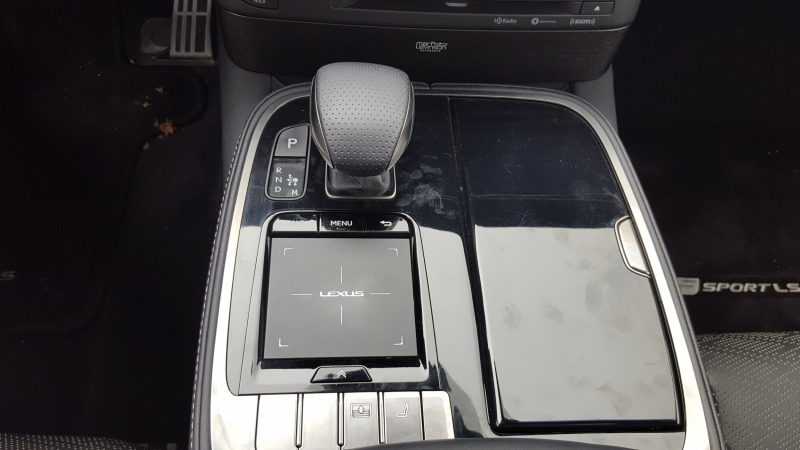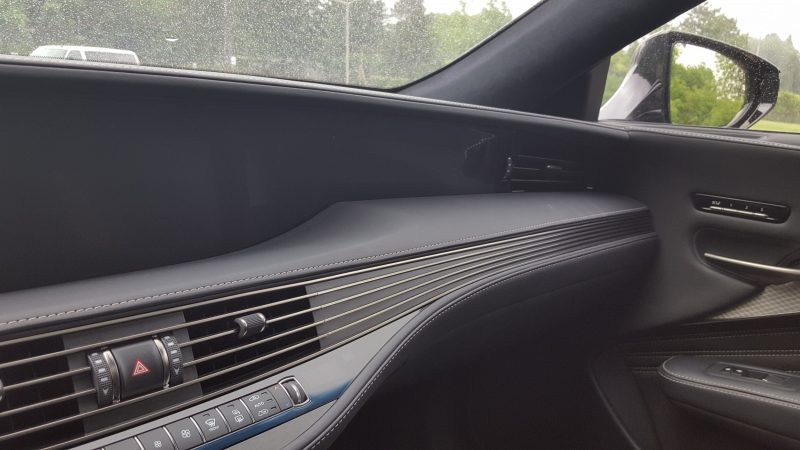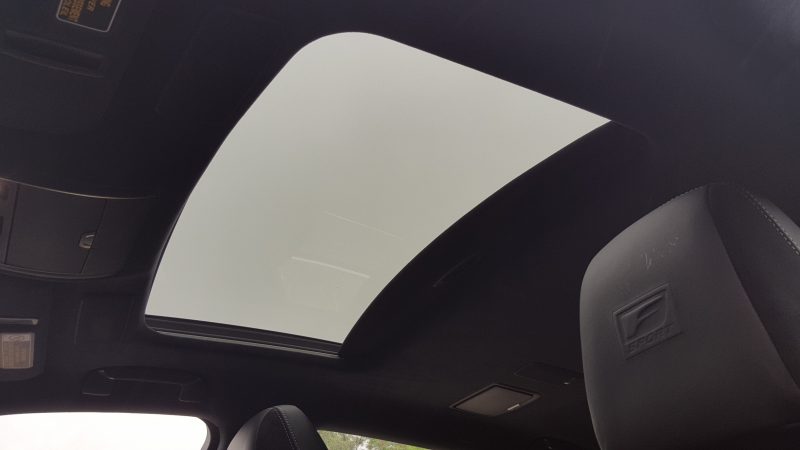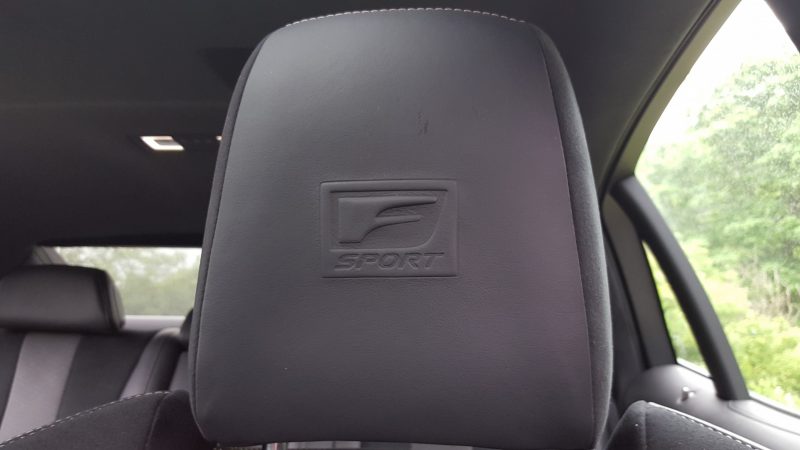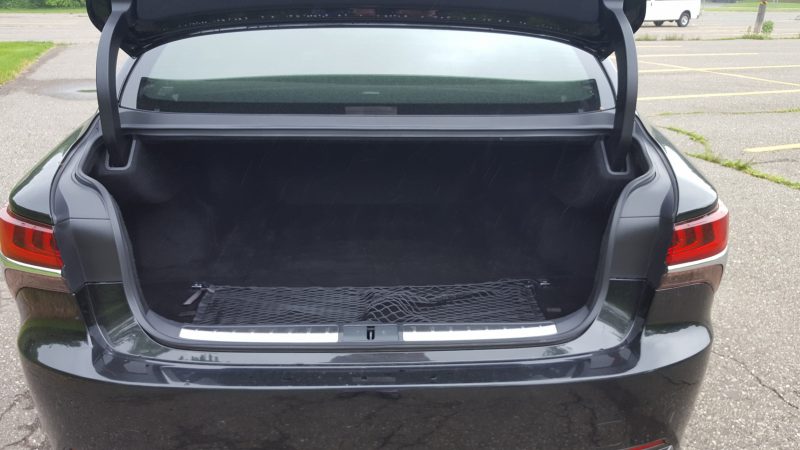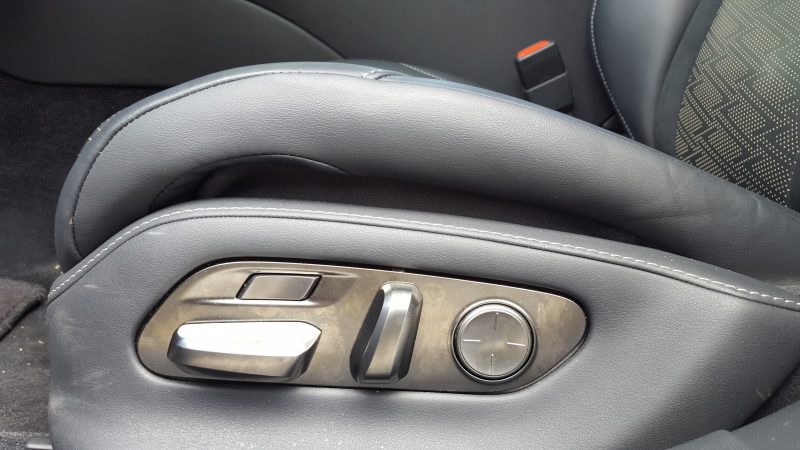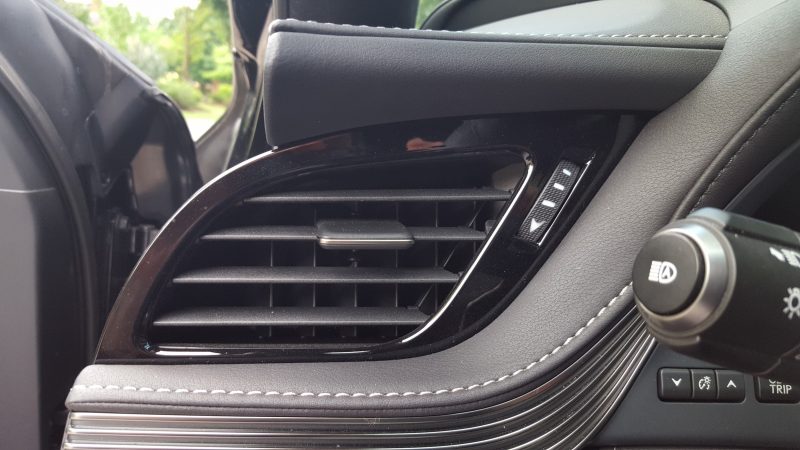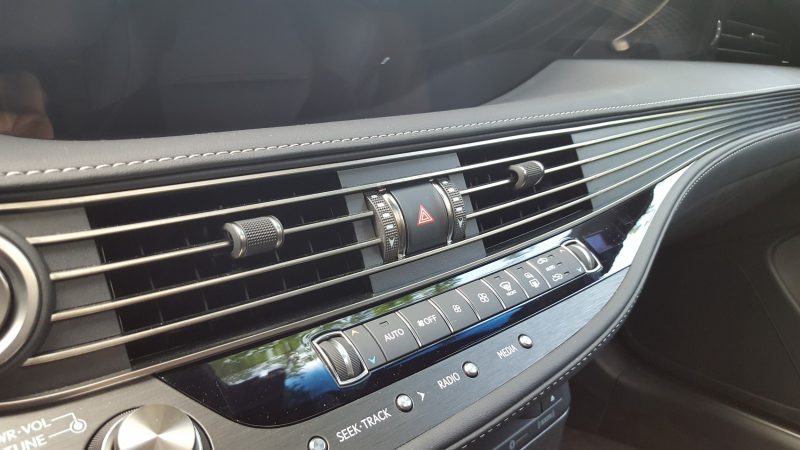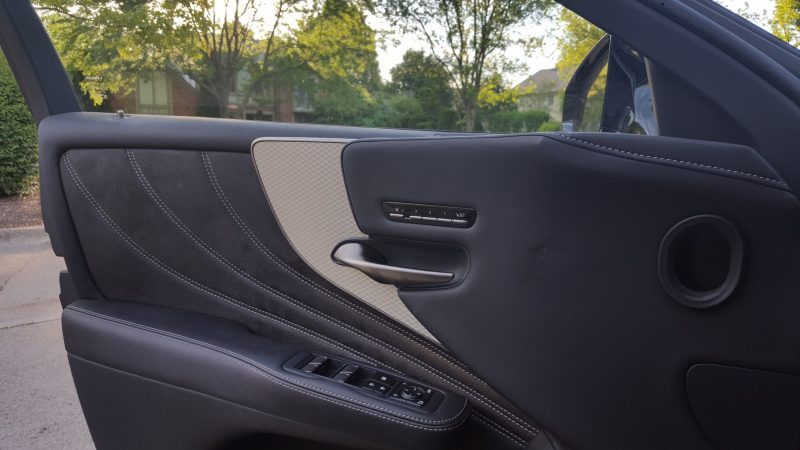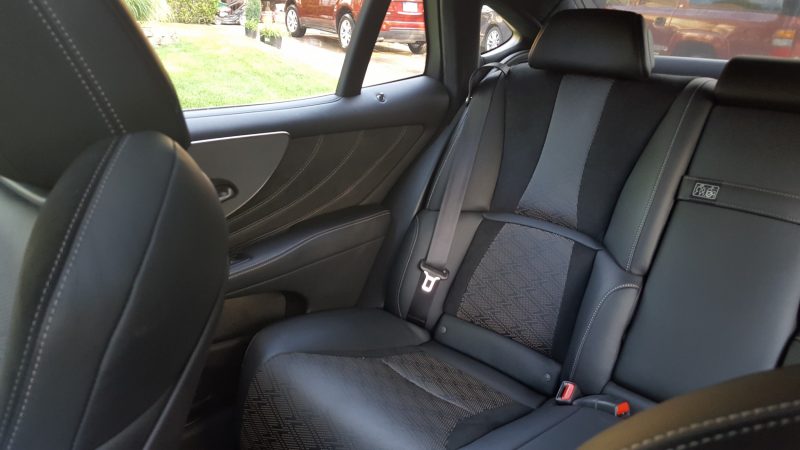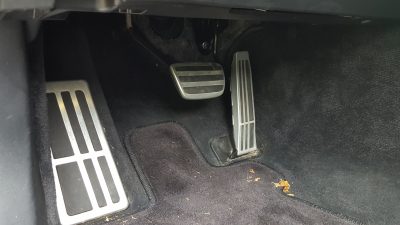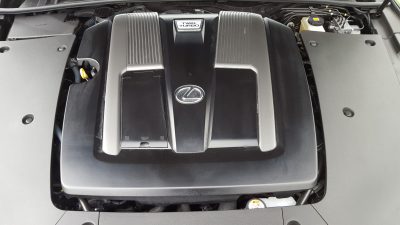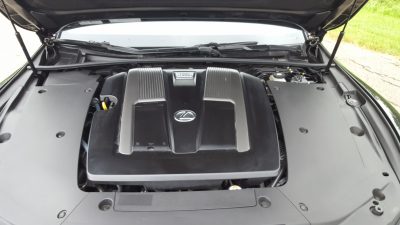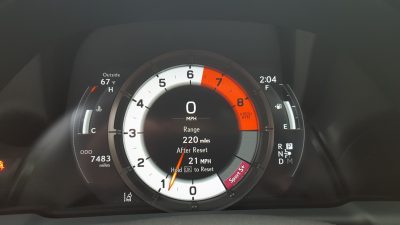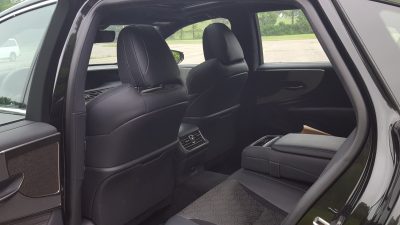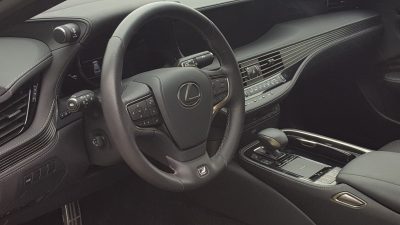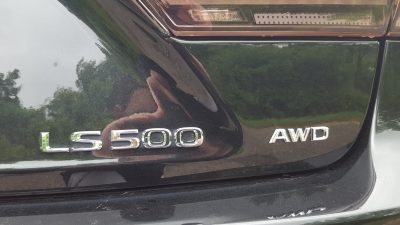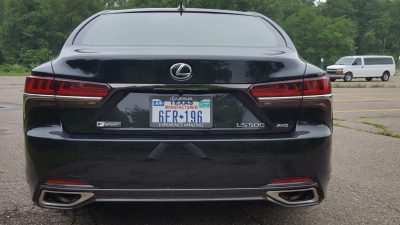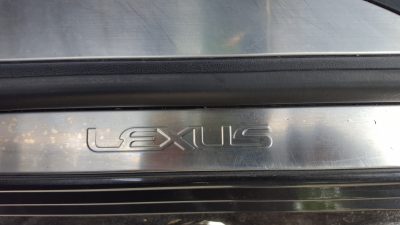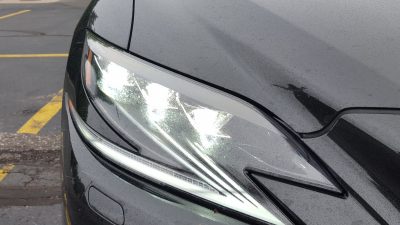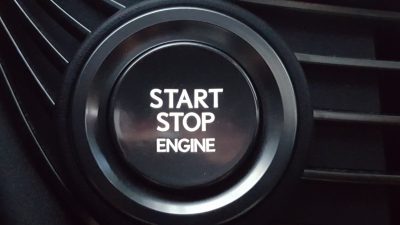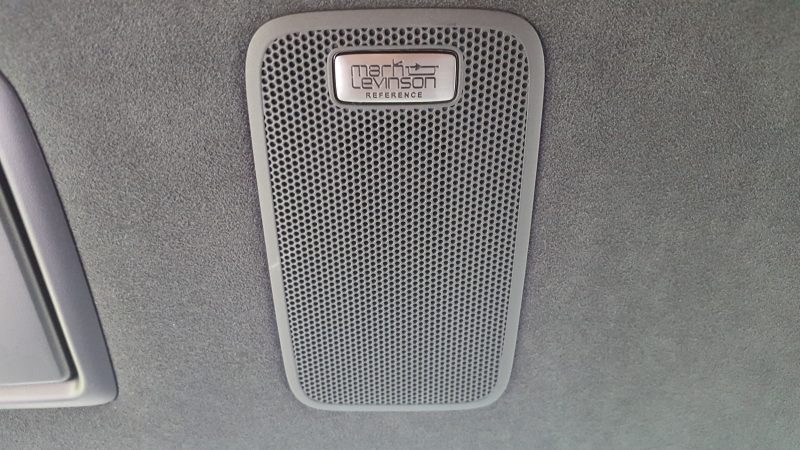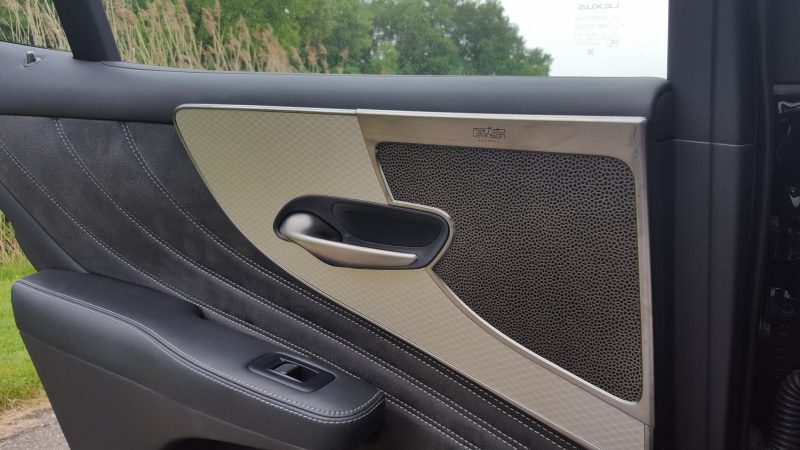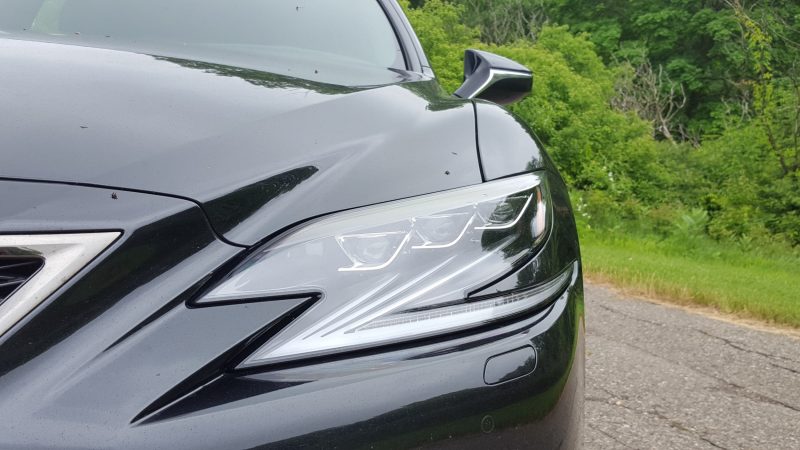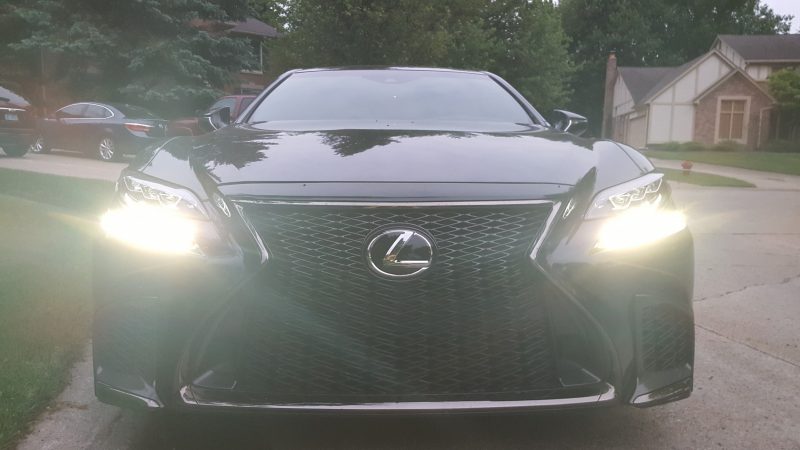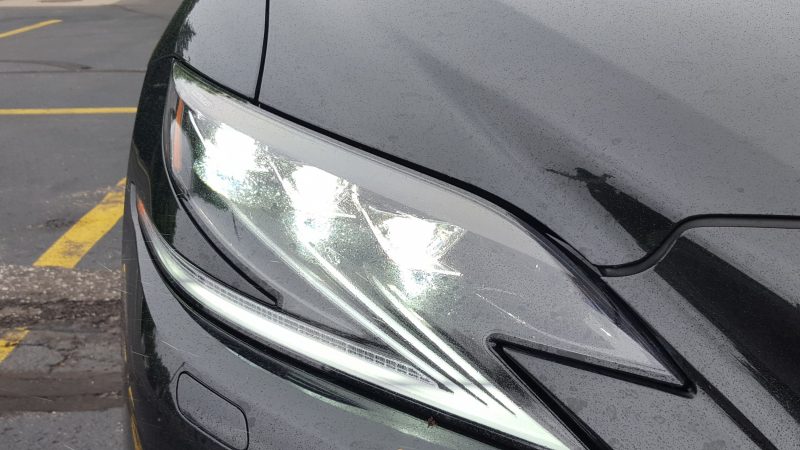With the recent swath of new luxury flagship sedans that have entered the marketplace, it can be very difficult to find which one is indeed the best fit for you and your budget.
This tough choice helped serve as inspiration for our inaugural three way international luxury car comparison test. We assembled three of the most popular luxury flagship sedans and drove them side by side to help find which one is indeed best.
The German benchmarks (BMW 7-Series, Mercedes S-Class, and Audi A8) were excluded, and instead we focused our attention on two new players (the Genesis G90 3.3T and Cadillac CT6 Platinum) as well as an established player (the 2018 Lexus LS 500) to find out how they measured up.
As a bonus, we had our resident audiophile (and my fiancee) Emily come along to judge the stereo systems in all three.
The four door coupe craze is in full swing, and with sloping rooflines currently in vogue, Lexus designers opted for a middle ground, with a sweep to the rear window that is certainly different than a traditional three box sedan, but is also decidedly more upright than the lines seen on an Audi A7 or the BMW Gran Coupe lineup.
The overall look is still very attractive, with the bold front spindle grille being flanked by sleek headlights, as well as the elegant side profile. The sinister black hue of our tester further amped up its street cred, and leads out to the bold rear end which features elegantly crafted tailights and a handsome rear bumper. F-Sport models come equipped with distinctive 20-inch forged aluminum wheels, and they certainly lend a sporty flair to the side profile, while also looking tastefully elegant at the same time.
A key element of any luxury sedan is its ability to coddle occupants in opulent luxury, and on that front, the Lexus was a mixed bag which also resulted in it earning third place for this comparison (despite earning bonus points for helping me propose to Emily on a sunny June afternoon at the Troy Historic Village.)
On the surface, the LS F-Sport wows the senses with plenty of high quality plastics, leather, and real metal accents replacing the equally authentic wood trim found in other LS trims. The front seats were decently bolstered, and offered occupants plenty of comfort and support. However, look underneath the surface, and there are a number of shortcomings that make themselves apparent.
For instance, our tester’s back seat accommodations lagged behind those of both the Cadillac and the Genesis, and the space back there is cramped. The sloping roofline also impedes on headroom, with taller occupants grazing the headliner when sitting back there.
Like the LC coupe, the LS utilizes Lexus’s new infotainment system, but the touchpad is just as unruly, and like before, this is a system that is best used when the LS is in park versus out on the move. Lastly the Mark Levinson surround sound system sounds impressive on paper, but when subjected to Emily’s honed ears, she revealed that sound quality was not very life like, and that the system had a plastic-esque sound to it, even in its most opulent sound modes.
It’s a shame that the presentation here is incomplete, especially since higher LS trims offer an impressive list of equipment that can even make a Mercedes S-Class blush with envy.
This includes an all digital owners manual, complete with videos showcasing how many of the features function (a potent conversation starter.)
Performance for our tester comes from a 3.4 liter twin-turbocharged V6 that makes a healthy 416 horsepower, and boasts impressive amounts of mid and top end power.
However, while the engine is one of the smoothest on the market, it’s 5.0 second 0 to 60 time is a tick behind other luxury sedan entries, and its horsepower number also trails the segment benchmarks. A 354 horsepower hybrid V6 can also be added to the F-Sport, but we recommend sticking with the traditional engine for its meatier power delivery.
The exhaust system also has a split personality, thanks to a valve in the pipes. Cruise along in the city, and the soundtrack is about as generic as any run of the mill Toyota Camry. However, put your foot into it, and the audio transforms into a delightful rip that makes freeway driving a fun experience. We wish that the latter would be the sole soundtrack, especially considering the F-Sport’s performance aspirations.
A 10-speed Aisin sourced automatic transmission is mated to this engine, and Lexus claims the new unit is actually lighter than the eight speed in the older LS. Shift quality is smooth, but there were occasions where it felt rather slow working through this many ratios, and its slow response to inputs from the steering wheel mounted paddles prompted us to leave the computers to do the shifting for the duration of its stay with us.
Lexus claims that the GA-L (Global Architecture of Luxury Vehicles) platform that underpins the 2018 Lexus LS is the stiffest structure in the brand’s history, but having a stiff shell does not necessarily translate into a sound handling solution, and is only one part of the broader handling equation.
Our tester had a smooth ride over most road surfaces, but it didn’t seem too enthusiastic when it was tasked with tackling challenging roads. The bulk of the blame centers around the various driving modes that are accessed via the Drive Mode selector. Normal mode is a strong baseline, and has the most balance, but we wished it had more body control.
Sport mode tweaks the power response, but it does not enhance overall steering feel and effort. Sport + mode does the opposite, and actually over-compensates in a number of areas.
Ride quality in this mode is way too firm over pockmarked roads, and steering feel is sharply reduced.
Braking is still very strong and firm, but it is a pity that this new LS has appeared to lose some of the confidence and security that once defined its predecessor. Our tester featured all-wheel drive (rear wheel drive is also available,) but while it will be a welcome addition to buyers that live in snowier locales, the system does not have a mode that allows it to partake in rear wheel drive shenanigans. This is in stark contrast to entries from Mercedes and BMW which offer such a feature.
Pricing for the 2018 Lexus LS 500 starts at $75,000 for the base rear-wheel drive model, with all-wheel drive models starting at a slightly higher $78,220.
Step up to F-Sport models like our tester, and be prepared to pay a base price of $81,000 for the rear wheel drive model, with all-wheel drive models starting at $84,215. Our tester arrived equipped with the $1,000 panoramic sunroof, and the $1,940 23-speaker 2400-watt Mark Levinson sound system, which helped bump the final price to $88,155.
This is a fair price to pay for a car that delivers a distinctly Japanese approach to luxury, while also bringing an arsenal of features to combat the best that Germany has to offer.
When it comes to delivering a performance tinged driving experience and showcasing the best that Japanese luxury has to offer, the 2018 Lexus LS 500 certainly has the goods to back it up.
However, the F-Sport needs more performance hardware, as well as more standard equipment to allow it to truly hold its own against newcomers, as well as the established benchmarks. Stay tuned to find out who won second and first place in this international triple threat match.
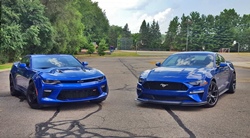
Carl Malek has been an automotive journalist for over 10 years. First starting out as a freelance photographer before making the transition to writing during college, his work has appeared on numerous automotive forums as well as websites such as Autoshopper.com.
Carl is also a big fan of British vehicles with the bulk of his devotion going to the Morgan Motor Company as well as offerings from Lotus, MG, and Caterham. When he is not writing about automobiles, Carl enjoys spending time with his family and friends in the Metro Detroit area, as well as spending time with his adorable pets.

